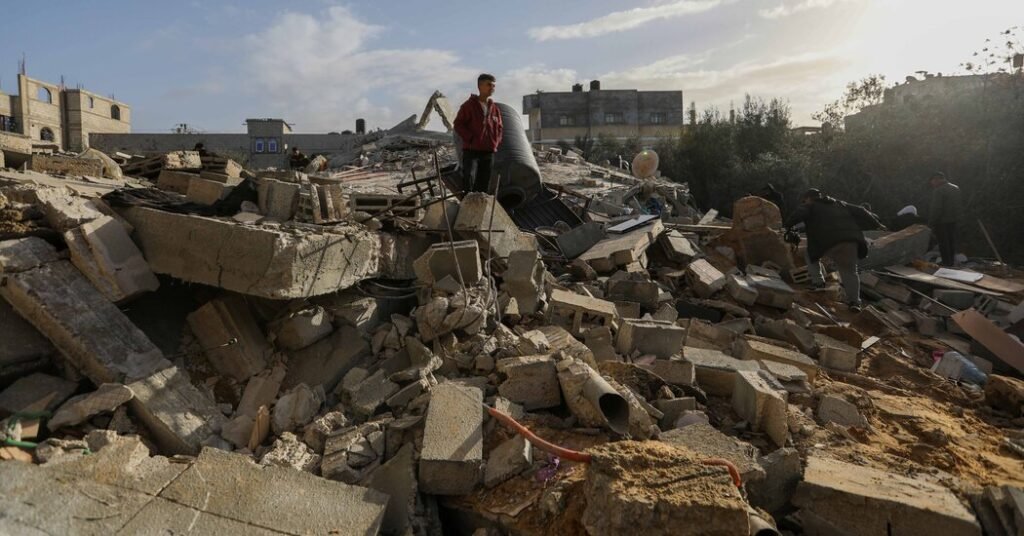A Hamas delegation arrived in Cairo on Sunday for talks aimed at reaching a ceasefire in the war in Gaza and exchanging hostages held by the militants there for Palestinian prisoners, according to an official with the group, Bassem Naim. However, a major breakthrough in the negotiations did not appear to be imminent, as Israel decided not to participate.
Israel made the decision after Qatar’s prime minister informed David Barnea, head of Mossad, Israel’s foreign intelligence agency, on Sunday that Hamas had refused Israel’s request to provide a list of hostages who were still alive, according to Israeli official.
Israeli Prime Minister Benjamin Netanyahu said Thursday that he has requested the names of hostages to be released as part of a deal.
Another factor that played into Israel’s decision was that Hamas refused to agree to the terms of a hostage exchange for Palestinian prisoners that the United States presented in Paris about 10 days ago, said two Israeli officials who spoke on condition of anonymity because they did not have authorization. publicly.
The US outline involved the release of hundreds of Palestinian prisoners from Israel in exchange for 40 hostages, with different numbers of prisoners exchanged for different categories of hostages, according to two officials familiar with the negotiations.
Mr. Naim declined to respond to allegations of denials by Hamas.
The United States has been pushing for a ceasefire ahead of Ramadan, the Muslim holy month that begins in about a week, but slow progress in talks has made that difficult.
Khalil al-Hayya, a senior Hamas official, headed the delegation in Cairo, Mr. Naim said in a text message.
Sticking points in the negotiations were the number of Palestinian prisoners to be released, including the number of those serving life sentences, and whether the ceasefire would be permanent or temporary.
On Saturday, a senior US official, who spoke on condition of anonymity to discuss sensitive diplomatic efforts, told reporters that Israel had “more or less accepted” a framework for the deal and that the ball was now in its court. Hamas.
However, Mahmoud Mardawi, a Hamas official, suggested on Saturday that the talks were not progressing.
“We have not seen any change in Israel’s position at all,” Mr Mardawi told Al Jazeera in a live interview. “He has offered us nothing.”
Israeli Prime Minister Benjamin Netanyahu said progress in the talks would require Hamas to tone down its “ridiculous demands”.
President Biden said Thursday that the bloodshed in northern Gaza earlier in the day, when dozens of Palestinians were killed when Israeli forces opened fire around a convoy of aid trucks, would complicate ceasefire negotiations.
“I know it will happen,” he told reporters in Washington, backing away from his earlier prediction that a deal could be reached by Monday. “Probably not until Monday, but I’m optimistic,” he said.
The Israeli military said most of those killed in Thursday’s chaotic scene were killed in a crash around the vehicles. Palestinian witnesses and medics said Israeli forces fired extensively, wounding and killing many.

